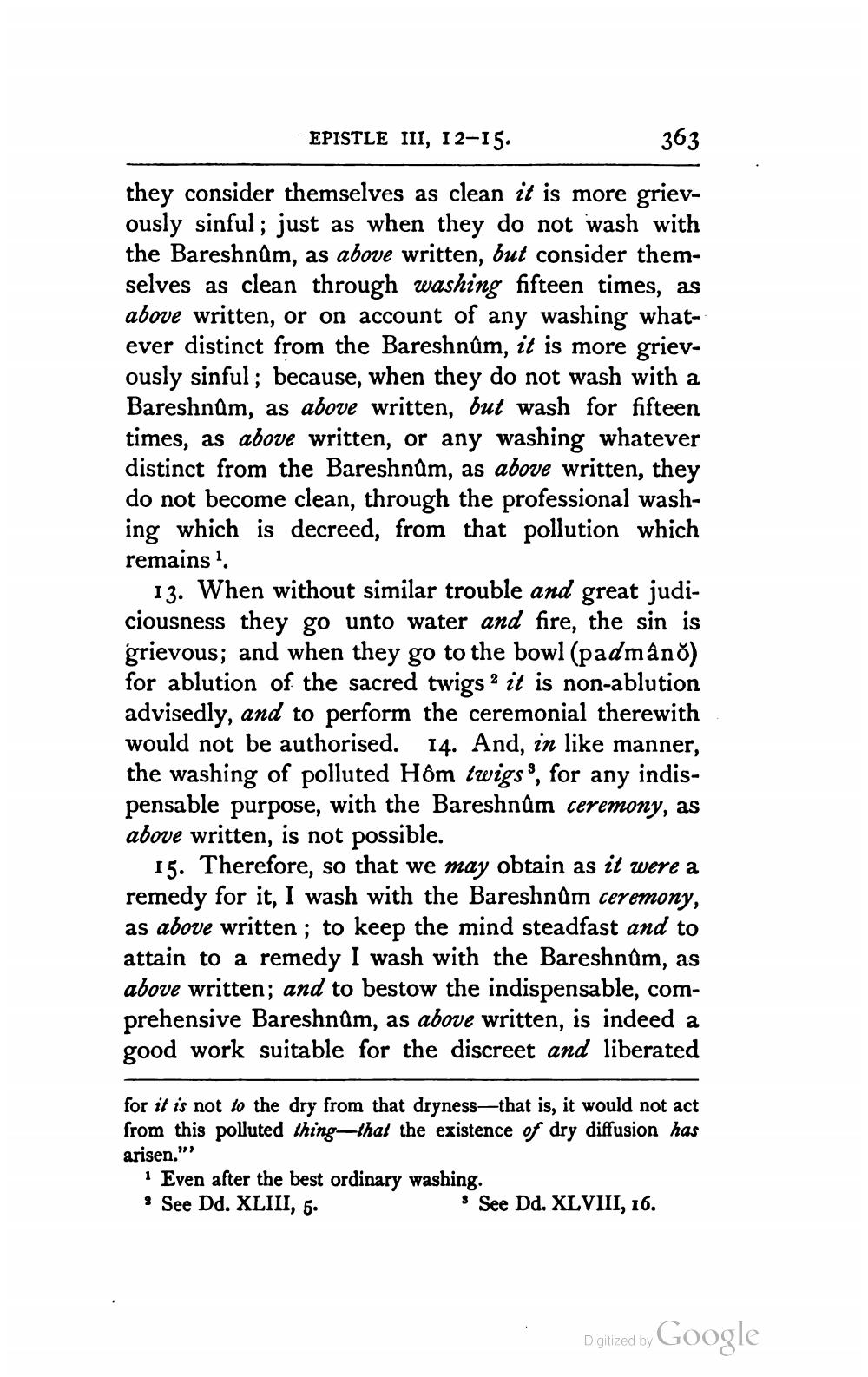________________
EPISTLE III, 12–15.
363
they consider themselves as clean it is more grievously sinful; just as when they do not wash with the Bareshnům, as above written, but consider themselves as clean through washing fifteen times, as above written, or on account of any washing whatever distinct from the Bareshnûm, it is more grievously sinful; because, when they do not wash with a Bareshnům, as above written, but wash for fifteen times, as above written, or any washing whatever distinct from the Bareshnům, as above written, they do not become clean, through the professional washing which is decreed, from that pollution which remains
13. When without similar trouble and great judiciousness they go unto water and fire, the sin is grievous; and when they go to the bowl (padmâno) for ablution of the sacred twigs 2 it is non-ablution advisedly, and to perform the ceremonial therewith would not be authorised. 14. And, in like manner, the washing of polluted Hôm twigs, for any indispensable purpose, with the Bareshnům ceremony, as above written, is not possible.
15. Therefore, so that we may obtain as it were a remedy for it, I wash with the Bareshnûm ceremony, as above written ; to keep the mind steadfast and to attain to a remedy I wash with the Bareshnům, as above written; and to bestow the indispensable, comprehensive Bareshnam, as above written, is indeed a good work suitable for the discreet and liberated
for it is not to the dry from that dryness—that is, it would not act from this polluted thing—that the existence of dry diffusion has arisen." 1 Even after the best ordinary washing. See Dd. XLIII, 5.
$ See Dd. XLVIII, 16.
Digitized by Google




